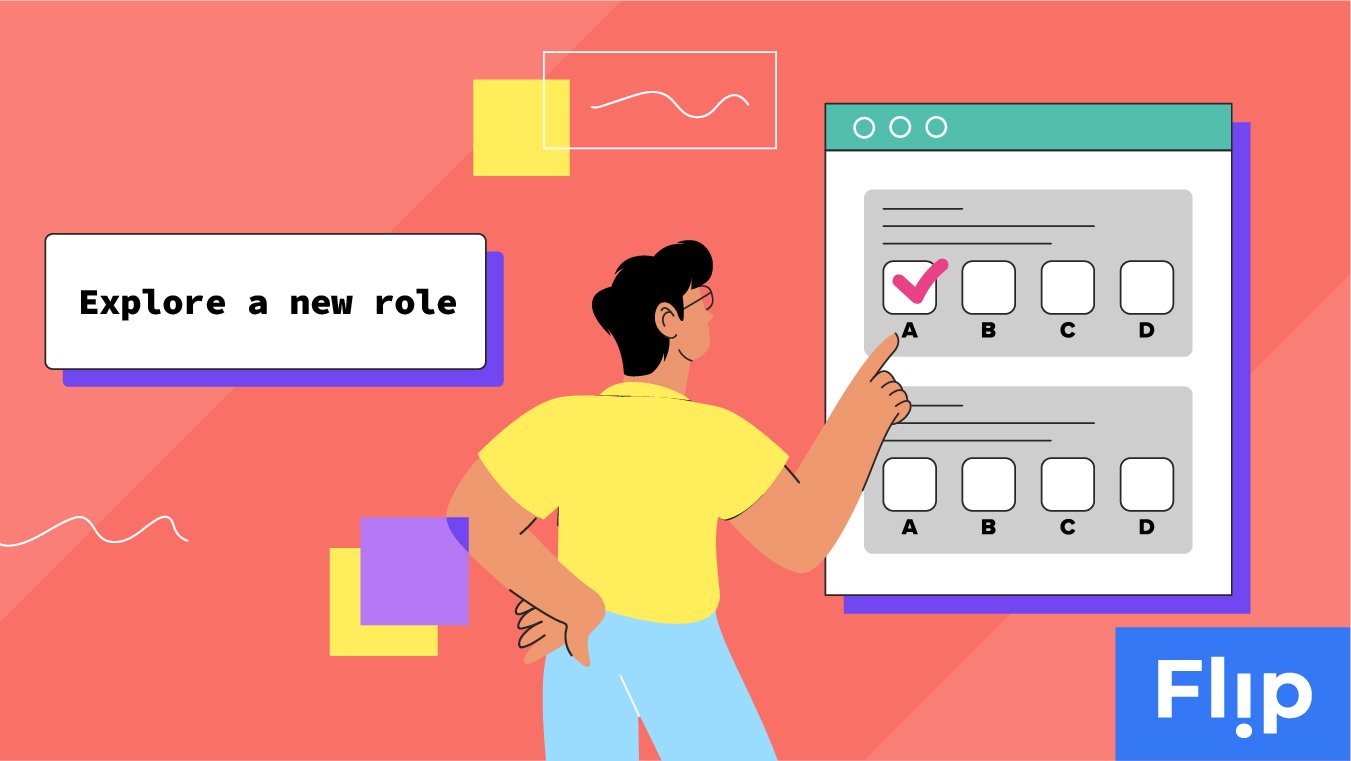Leveraging a Skills-Based Design for a Role Discovery Course
May 8 | Written by Julie Dozier
Tangram flips the script with a skills approach for learners exploring a new role in a redesigned intro-level course.
To drive internal mobility, our client developed introductory courses for the key roles in their organization. The primary goal for these courses was to attract employees across the org who may be interested in a different functional area, while giving them a realistic picture of the role. When these courses were a few years old and ready for updating, we had the privilege of leading the redesign process.
Our Approach
Our first step was figuring out the best approach for the new intro course design. We wanted to repurpose the original content where possible and refresh the design and visuals. But because this client had recently gone all-in on skill mapping across their organization, we also decided to use the new intro course to give an exploring learner a chance to build a few unique and essential skills for that role, giving them a taste of what their day-to-day would be like.
The next step was to choose the best skills to spotlight. For this purpose, we led a workshop with our SMEs, using their input and expertise to select a few skills that would be appealing and relevant to an all-employee audience, but also unique and representative of that specific role.
Our Design Flip
With the skills identified, we were excited to now make this eLearning interactive, adding realistic, fun activities where learners could practice these skills in ways they would use them on the job.
We included the following elements in the design:
Best Practices Video: We asked one of our SMEs to record herself sharing a few best practices for learning this new skill.
SME Tips: Based on the ideas the SME shared, we extracted a few of her dos and don’ts for easy reference.
Practice Activity: We developed realistic prompts inviting learners to make some decisions to practice each new skill (e.g., trade-off analysis). We worked with our SMEs to add helpful feedback designed to teach learners and encourage further self-paced skill-building.
The Results
Basing these intro modules on specific skills gave them a practical tone and allowed us to create useful, contextualized activities. This gave the modules a feeling of momentum and energy that they'd previously lacked. A special campaign supported the course launch, which drew positive attention to the role and the new learning approach. This would allow our client to set a higher completion target for the new discovery courses, with the added benefit of more promotion about internal mobility and increased awareness about roles within the organization. And because of its relevance even in this new use case, this project reinforced our aim to incorporate a skills focus into everything we design.

